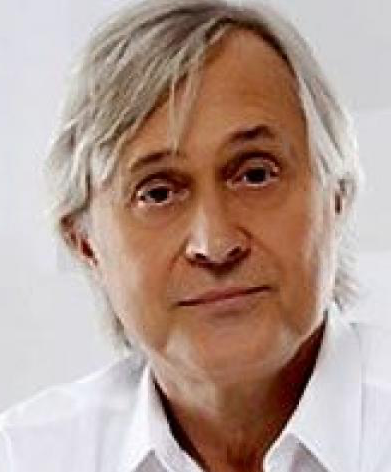
Kuruluş yıldönümünde hangi AK Parti?
AK Parti, 1990’ların başında itibaren, güçlenen, yenilenen, Batı piyasalarına, ekonomik sisteme entegre olmak isteyen dindar-muhafazakâr bir sermaye dokusu, onun siyasal, kültürel, sosyal temsilcileri üzerinden yaşadığı sınıfsal bir değişim içinde doğdu.
Bu çerçevede RP ve özellikle FP’nin izinde yeniden örgütlenen, sistemin merkezine ilerlemek isteyen, hak ve alan talep eden büyük toplumsal bir çevre hareketini ifade ediyordu. Bu toplumsal hareketin bir enerji kaynağı da, İran devriminin de etkisiyle geleneksel yapılar yerine modern alanda siyaset yapmaya yönelen dindar kitlelerdi. Bu kitleler 80’lerden itibaren adım adım merkez sağ partilerden uzaklaşıyor, kendi siyasi taşıyıcılarına yöneliyorlardı.
AK Parti’nin yükselişi, bir yönüyle ülkedeki bu tür kültürel ve sınıfsal kırılmalar, siyasal, ekonomik yeni ayrışmalar, yer değiştirmeler ve yükselen talepler üzerinden gerçekleşti.
Diğer yönüyle, ciddi bir iddia taşıyor, belli bir kimlik gücü ve büyümesini, yerleşik düzene yönelik örtülü bir başkaldırıyı temsil ediyordu.
Nitekim 2002’den iktidara geldiği andan itibaren, (esas olarak 1997’de RP’nin iktidar ortaklığıyla baş gösteren) iki süreç iç içe girerek Türk siyasi hayatını belirlemeye başladı.
İlk süreç, yeni iktidarın kapalı sistemi açma çabalarıydı. Bu çabalar yeni ve şaşırtıcıydı. İslami dalga ve taleplerden uzaktı. Tersine Avrupa Birliği desteği ve modeliyle demokratikleşme siyasetine dayanıyordu. Simgesel olarak Türkiye’de ilk kez dindar bir siyasi partinin Batı demokrasisi ve Avrupa Birliği’yle barışık politikalar izlemesini içeriyordu. AK Parti ilk günden itibaren Avrupa Birliği’nin rehberliğinde reformlarla ve yol almaya başladı. İzlendiği politikalar, toplumsal bakımdan seküler ve dindar kesimler arasında etkileşim kapısını açıyor, ortak alan oluşumlarını tetikliyordu. Bu yürüyüş içinden geldiği gelenekte bir kopuşu temsil ediyor, yerel değerleri evrensel değerlerle yakınlaştırma söylem ve siyaseti üzerine oturuyordu.
Bu süreç öykünün “ak” tarafı ve dönemini anlatır. Nitekim bu etkiler yasal düzeyde gerçekleştiği kadar laik ve dindar kesimlerin “kendilerine” ve “ötekine” yönelik bakışlarında demokratik girdileri devreye sokmuştur.
İkinci süreç ise iktidar mücadelesi merkezliydi. Yerleşik sistemin İslami kökenli bir iktidara, Kemalist kalıpları ters yüz etme niyetine ve reformcu politikalarına verdiği tepkilere dayanıyordu. Sonuç iktidarın yeni sahipleriyle (medya, üniversiteler, ordu, diğer organlar düzeyinde temsil edilen) eski sahipleri arasında bir iktidar mücadelesinin, devlet alanını kontrol etme kavgasının baş göstermesi oldu. Siyasi toplumsal değişim süreci bu çerçevede adım adım iktidarın el değiştirmesine dönüştü. Bu süreç, taraflar ve iş birliğine girdikleri siyasallaşmış devlet kurumları, para-politik Gülen tarzı cemaatler gibi yapıların devreye girmesini ve bunlar arasında birden çok ve karşılıklı darbe ve tasfiye girişimlerini, güç, şiddet ve kumpasların devreye girmesini , kirli para dalgalarını içerdi. Arap Baharı’ndan esen İslami kimlik rüzgarı, Gezi olayları, Kürt isyanı korkusu, iktidarın darbe endişeleri, Avrupa ve Türkiye’deki siyasi iktidar arasındaki değer makasının açılmasıyla çatışma iyice katılaştı.
Bu süreç öykünün kara tarafı ve dönemini ifade eder. Birinci süreç gibi, hatta ondan daha yoğun kalıcı etkileri olmuş, Türkiye’nin otoriter bir istikamete savrulmasının aracı haline gelmiştir.
Bu istikamette kritik yıl 2016’dır. Bu tarihten itibaren AK Parti’nin taşıyıcılığında 2016 rejimi olarak adlandırılabilecek otoriter bir dokunun kurumlaşmaya başlamıştır. Türkiye’nin bu çerçevede AK Parti’nin yeni siyasi modeli, “disiplinli/itaatkâr toplum, otoriter kurumsal işleyiş, güçlü devlet, keyfi ve milliyetçi siyaset”e dönüşmüştür.
Dün Erdoğan, kuruluşu yıl dönümünde AK Parti’nin hikayesini anlatıyor, bir güzelleme yapıyordu.
Asıl hikaye budur, güzelleme yapılacak tablodan çok ama çok uzaktır.
